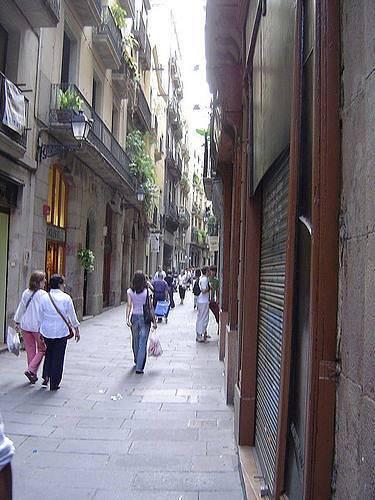
For the 2.6 million Catalonia residents who recently cast their votes for secession from Spain, independent self-rule is a dream that's remained unfulfilled for decades. For many of the businesses that make up the region’s bustling economy however, it’s been a textbook example of how not to declare statehood.
That’s because Barcelona, the region’s capital, is Spain’s economic engine. More than 20 percent of the country’s GDP comes from Barcelona, a magnet for global tourism and a powerhouse when it comes to technological innovation. As one of the country’s largest port cities, it also controls much of the country’s access to maritime commerce.
Book a luxury cruise of the Mediterranean and chances are you’ll be stopping in Barcelona for a night or three. Have business in Mallorca, Spain's island autonomous region? Most likely your ferry or ship will leave from Barcelona's state-of-the-art port. Tourism is the region's number-one industry, and has been for decades.
As a child I had the good fortune to spend a number of months on Catalonia's sunny coast while my family was in transit to a temporary home in England. Signs that Spain's tourism industry would soon explode were everywhere. And Catalonia, Spain's carefully controlled jewel, would become its seat.
The evidence that Barcelona, not capital-city Madrid, would eventually command the country's economic growth was evident in its cultural resurgence as well. This movement has not only given fertile ground to secession bids in both the Basque and Catalonia regions in recent decades, but helped Spain gradually recognize the benefit of acknowledging its multicultural roots. Jewish and Muslim cultural landmarks, once a carefully hidden facet of Spain's early history, are now highlighted in Spain's lucrative tourism sector. And Barcelona's century-old synagogues, mosques and museums have a role to play in that development as well.
But tourism isn't Barcelona's only economic generator. In recent years the area has become an inspiration for tech start-ups looking to capitalize from the region's global interface. Companies like Cisco, eDreams, and Mondo are just a few of the thousands fueled by foreign investment that have made a home on Spain's northeastern shores in recent decades. In 2015 foreign investment in Barcelona's booming tech sector and other industries was more than twice that of the rest of Spain.
In recent years though, that confidence has begun to bleed out. Businesses, shaken by the growing call for secession have discovered new homes in other parts of Spain. According to the Spanish publication, Expansion, more than 3,000 companies relocated out of the Catalonia region to other areas of the nation between 2008 and 2015. While many of these migrations weren't due to the current political situation, the publication notes, major companies like Grupo Agbar, which offers technological services in the management of water in the region have taken the call for independence as a signal of changing opportunities. Others like the telecom Cellnex and satellite broadband Eurona have announced their departure in recent months as well.
But it's the region's own banking institution, Caixabank, that may say the most about what local companies expect from a bid for independence. According to the bank's board, the "current political and social situation in Catalonia" has prompted the company to relocate away from Barcelona, where banking institutions, suddenly faced with the implications of a new, controversial and politically charged statehood, could find it more difficult to conduct business with European partners.
And therein lies Catalonia's greatest challenge. Popular support, as the movement's leaders are finding, is only half of the equation needed in statehood. As France24 writer Ségolène Allemandou puts it, Catalonia President Puigdemont "doesn’t worry too much about economic or social issues."
It's "independence, independence, independence" that drives Puigdemont and his supporters toward statehood, says Jose Antich, director of Catalonia's popular newspaper, El Nacional.
For Catalonia's remaining 7,000 foreign investors who are now weighing whether to stay in the Barcelona area, however, it won't be the dream of independence that will define Catalonia's success as an international powerhouse. It will be the question of whether its government and its future ambitions have the nation's businesses just as much in focus as their political dreams.
Flickr images: Jorge Franganillo; Yusuke Kawasaki; Maarten
Jan Lee is a former news editor and award-winning editorial writer whose non-fiction and fiction have been published in the U.S., Canada, Mexico, the U.K. and Australia. Her articles and posts can be found on TriplePundit, JustMeans, and her blog, The Multicultural Jew, as well as other publications. She currently splits her residence between the city of Vancouver, British Columbia and the rural farmlands of Idaho.














